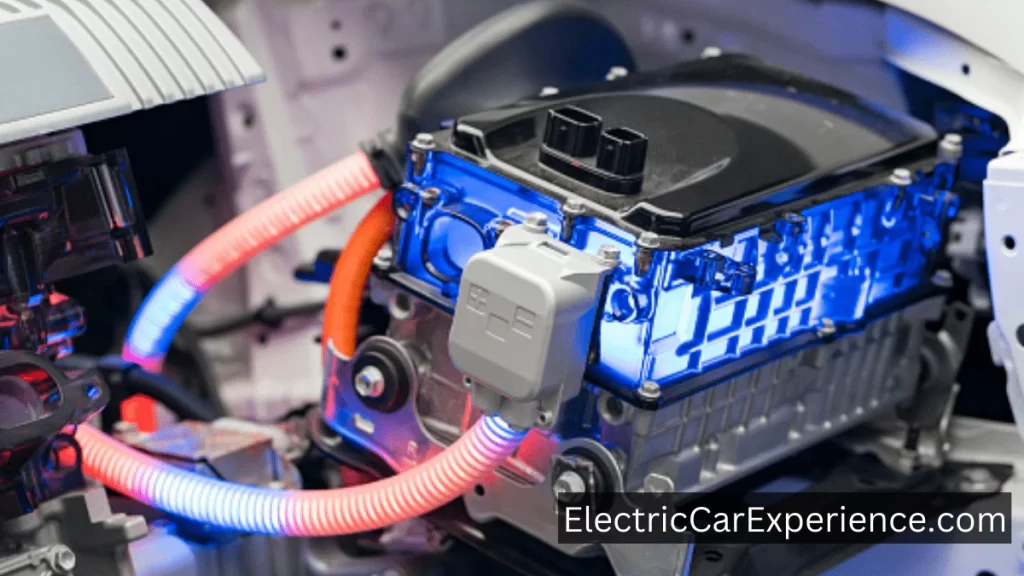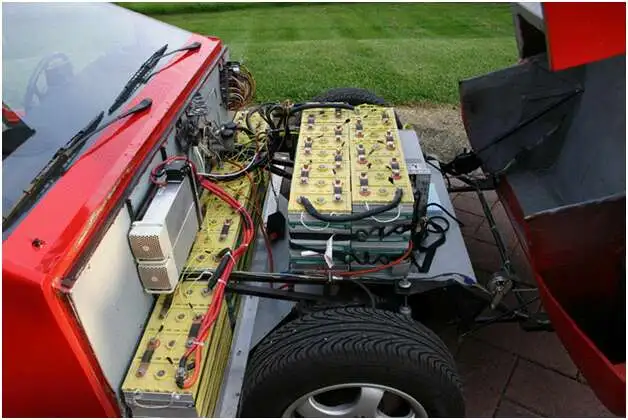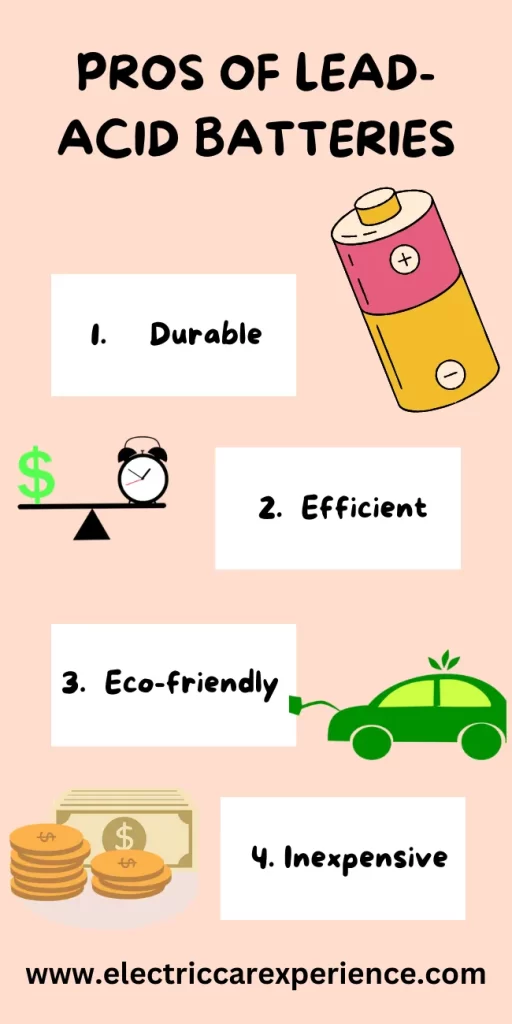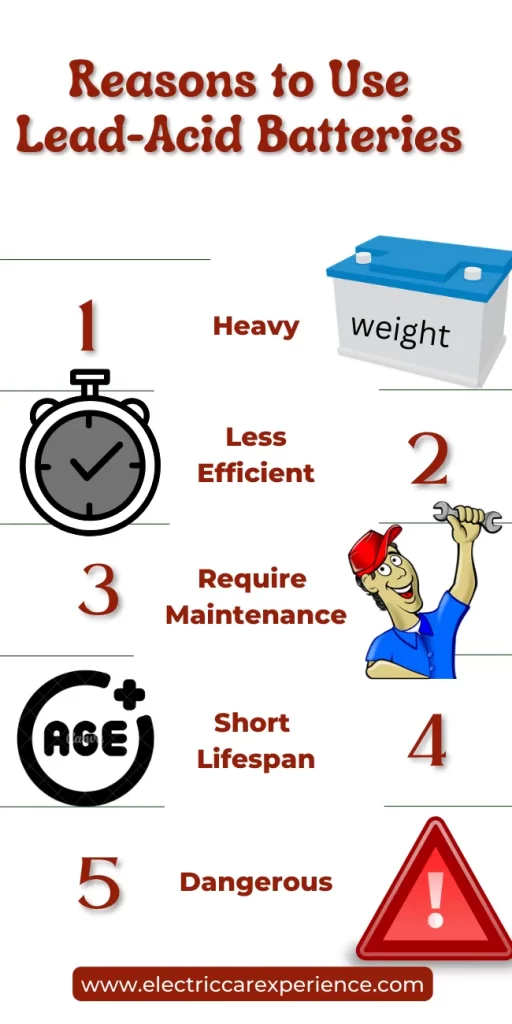
Electric cars have been around for over a century, but it was only in the last few decades that they began to gain mainstream attention. So What Kind of Batteries Did Electric Cars Use Before Lithium-Ion?
In the early days of electric cars, lead-acid batteries were the only option. These batteries are heavy, expensive, and have a relatively short lifespan. Nickel-cadmium batteries were developed and used in some electric cars, but they had several drawbacks. They were expensive, toxic, and not very energy-dense.
In the 90s, oil prices began to rise and interest in electric cars increased. Lead-acid batteries were not well suited for all-electric cars, so new battery technologies were explored.
Then, in 2000, lithium batteries were used in Electric cars. But what are the reasons that Lead-Acid batteries are not the best batteries for an Electric Car? Why lithium-ion uses over lead-acid batteries?
If you are interested to know the answer to all these questions, then just read this entire blog until the end. So, without any further discussion let us begin!
[toc]
Lead-Acid Batteries in an Electric Car!

Electric cars are powered by electricity from batteries. The electricity is stored in the batteries as chemical energy. The batteries are made of lead and acid.
Lead-acid batteries are the most common type of battery used in electric cars. They are also the oldest type of battery still in use today. Lead-acid batteries work by using a chemical reaction to create an electrical current.
Lead and acid combine to create lead oxide and sulphuric acid. This chemical reaction creates electrons, which flow from the negative to the positive terminal of the battery, creating an electrical current.
Lead-acid batteries are very durable and can last for many years with proper care. Lead-acid batteries are used in electric cars because they are inexpensive and have a long life. A lead-acid battery can be used for many years if it is properly maintained.
Some people think that lead-acid batteries are not suitable for use in electric cars. They say that lead-acid batteries are too heavy and take up too much space. They also say that lead-acid batteries are not as efficient as other types of batteries.
Other people think that lead-acid batteries are the best type of battery for electric cars. They say that lead-acid batteries are reliable and have a long life. They also say that lead-acid batteries are cheaper than other types of batteries.
Why Lead-Acid Batteries are Used in Electric Cars?
Electric cars have been around for over a century, but they've only recently gained widespread popularity. One of the main reasons for this is the development of reliable and affordable lead-acid batteries. Lead-acid batteries are used in electric cars because they are relatively inexpensive, have a long lifespan, and are highly efficient.
Lead-acid batteries were first developed in the late 1800s, and they quickly became the standard for powering electric vehicles. Lead-acid batteries are made up of lead and sulfuric acid, which react to create electricity.
The lead plates in the battery are alternately charged and discharged as the car is driven, and this reaction produces a large amount of electricity.
Lead-acid batteries are used in electric cars because they are relatively inexpensive. The cost of lead-acid batteries has fallen significantly in recent years, making them a more affordable option for car manufacturers.
Lead-acid batteries are also highly efficient, meaning that they can store a large amount of electricity in a small space.
Lead-acid batteries have a long lifespan and can last for many years with proper care. Lead-acid batteries are also relatively easy to maintain and can be recharged many times before they need to be replaced .
Lead-acid batteries are still the best option for powering electric cars. Lead-acid batteries are less expensive than other types of batteries, and their long lifespan makes them a good investment.
Pros of Lead-Acid Batteries

| Pros of Lead-Acid Batteries | Description |
|---|---|
| Durable | Lead-acid batteries are very durable and can last for many years with proper care. |
| Efficient | Lead-acid batteries are very efficient at storing and releasing electricity. This makes them ideal for electric cars, which need to be able to store a large amount of electricity to power the car for long distances. |
| Eco-Friendly | Lead-acid batteries are also environmentally friendly. They do not release any harmful emissions into the atmosphere, which is important for electric car owners who want to be as eco-friendly as possible. |
| Inexpensive | They are also relatively inexpensive, making them a cost-effective option for electric car owners. Lead-acid batteries are also easy to find and replace if necessary. |
Cons of Lead-Acid Batteries
| Heavy | They are relatively heavy, which means that the car will use more energy to move. |
| Less Efficient | They are not particularly efficient, meaning that the car will not be able to travel as far on a full charge as a petrol or diesel car. |
| Short Lifespan | Lead-acid batteries tend to have a shorter lifespan than other types of batteries, meaning that they will need to be replaced more often. |
What does Tweet say About Electric Car Batteries?
- Global lithium consumption doubled in the decade before 2012
- How green is it to use lithium-ion batteries?
- Millions Of Electric Car Batteries Retiring By 2030
Why Lead-Acid Batteries Should Not Use Today in An Electric Car?
Because Lead-acid batteries are one of the oldest types of batteries, and they are still in use today in many applications. However, there are some good reasons why lead-acid batteries should not be used in electric cars.

| Reasons to use Lead-Acid Batteries | Description |
|---|---|
| Heavy | Lead-acid batteries are heavy. This is due to the lead plates that are used in the battery. The lead plates add a lot of weight to the battery, which can make the electric car heavier. |
| Less-Efficient | Lead-acid batteries are also not very efficient. They can only store a limited amount of energy, and they lose some of their charges over time. This means that electric cars that use lead-acid batteries will have to be recharged more often than cars that use other types of batteries. |
| Requires More Maintenance | Lead-acid batteries require more maintenance than newer battery technologies, which can be a hassle for electric car owners. |
| Short Lifespan | Lead-acid batteries also have a shorter lifespan than other types of batteries. They will need to be replaced more often, which can be expensive. |
| Dangerous | Lead-acid batteries can be dangerous. The lead in the battery can leak out and cause health problems. |
Overall, there are some good reasons to avoid using lead-acid batteries in electric cars. However, they are still in use in many applications.
Lead-Acid Battery over Lithium-Ion Battery
The debate over which type of battery is better for electric cars has been going on for years, with no clear winner in sight. The two main types of batteries are lead-acid and lithium-ion and each has its advantages and disadvantages.
Let's take an example to understand better
The EV1 from General Motors was the first mass-produced electric car with a lead-acid battery. The EV1 used an AC induction motor and lead-acid batteries. The batteries were made by Panasonic, and the cars were leased to drivers in California and Arizona from 1996 to 2003.
The second generation of the Chevy Volt, introduced in 2016, uses a lithium-ion battery. The Volt can travel up to 53 miles on a single charge, compared to the EV1’s maximum range of just over 100 miles.
The main advantage of lead-acid batteries is their low cost. Lead-acid batteries are also more tolerant of cold weather than lithium-ion batteries.
Lithium-ion batteries have several advantages over lead-acid batteries. Lithium-ion batteries are lighter and take up less space than lead-acid batteries. They can also be charged and discharged more times than lead-acid batteries, meaning they have a longer lifespan.
Lithium-ion batteries are also more efficient than lead-acid batteries, meaning they can store more energy in a given space. This is one of the reasons why the Chevy Volt has a much longer range than the EV1.
The main disadvantage of lithium-ion batteries is their cost. Lithium-ion batteries are significantly more expensive than lead-acid batteries.
Which Type of Battery Do You Think is Best for Electric Cars?
Electric cars are becoming more and more popular, as people look for ways to reduce their carbon footprint and save money on fuel costs. But what type of battery is best for electric cars?
There are three main types of batteries used in electric cars: lead-acid, nickel-metal hydride, and lithium-ion. Lead-acid batteries are the oldest technology and are used in the majority of electric cars. They are relatively inexpensive but have a shorter life span than the other types of batteries.

Nickel-metal hydride batteries are more expensive than lead-acid batteries, but they last longer and hold more energy. Lithium-ion batteries are the most expensive, but they are also the most efficient and have the longest life span.
Parameters of Every Battery Used in An Electric Car
| Battery | Mass-Energy Density | Volume-Energy Density | Power Density | Self-Discharge Rate (Per Month) |
|---|---|---|---|---|
| Lithium-Ion Battery | 100-180 Wh/Kg | 200-300 Wh/L | 1000-1500 W/Kg | 1-5% |
| Lead-Acid Battery | 30-40 Wh/Kg | 60-75 Wh/L | 180 W/Kg | 3-20% |
| Hybrid Nickel (NIMH) Acid Battery | 40-120 Wh/Kg | 140-400 Wh/L | 300-1000 W/Kg | ~30% |
So, which type of battery is best for electric cars? There is no simple answer to this question as it depends on several factors, including cost, range, recharging times, and durability.
Li-ion batteries are the most expensive, but they offer the best performance. If cost is a critical factor, then a lead-acid battery may be the best option. If the range is the most important factor, then a Lithium battery again may be the best choice.
Conclusion
Conclusion #1: Types Of Battery Used
In the early 20th century, several different battery types were developed and used in electric cars. These included nickel-iron batteries, nickel-cadmium batteries, and lead-acid batteries. However, none of these types of batteries was able to provide the same level of performance as lithium-ion batteries.
It wasn't until the 1990s that lithium-ion batteries were developed. These batteries are much lighter than other types of batteries, and they are also much more efficient. This means that they can store more energy than other types of batteries, making them ideal for use in electric cars.
Conclusion #2: Lithium batteries used in hybrid vehicles
Lithium-ion batteries are now the most common type of battery used in electric cars before lead-acid batteries. They are light, efficient, and have a long lifespan. However, they are also very expensive, so they are not suitable for everyone.
FAQs
Are lithium batteries used by all-electric cars?
Lithium-ion batteries are among the finest in the race for more effective battery sources and larger capacities. They are becoming the standard for both contemporary electric cars and ordinary devices.
Today's hybrid and all-electric vehicle models come standard with lithium batteries.
Why are lithium batteries used in hybrid vehicles?
Both hybrid and all-electric vehicles require a reliable battery source to power the vehicle's electronics. In light of this, the majority of new electric vehicle releases will use lithium batteries as their power source. This covers current-generation hybrid and all-electric vehicles.
How manner lithium-ion batteries function?
Thousands of different lithium-ion cells are working as a single unit in the battery pack. Lithium-ion batteries undergo the same charging and discharging cycles as traditional batteries, which take place when your car is plugged in and when the battery is exhausted while you're driving.
Which kind of batteries are used in an Electric cars in the 20s?
Lead-Acid Batteries are one of the oldest batteries that fit in an Electric car.
Posts Related to Electric Cars and Batteries
- How is a Lithium Crisis Tied to an Inflation Reduction Act?- A complete guide 2024
- Are Electric Car Batteries Harmful to Your Health?
- chevy bolt extended warranty – Latest Updates
- The basics of electric vehicle battery grounding
- How Many Pounds of Raw Materials are Needed to Make an Electric Car Battery
- Thermal Management System of Batteries in Electric Cars and Vehicles – A complete guide 2024
- Tesla Model 3 Error Messages (Error Codes)
- Can You Power Your House With Used Electric Car Batteries? If So, Is The Off-Grid System Created From Those Batteries Legal?-An Ultimate guide 2024
- Radiation From Electric Cars
- Are Polyjoule Batteries Fire Resistant?
- Can An Electric Car Battery Be Divide Into 2 Batteries So That You Can Charge Both Of Them At The Same Time And Reduce The Time Of Recharge By Half?
- Nissan Leaf Battery Replacement Cost
